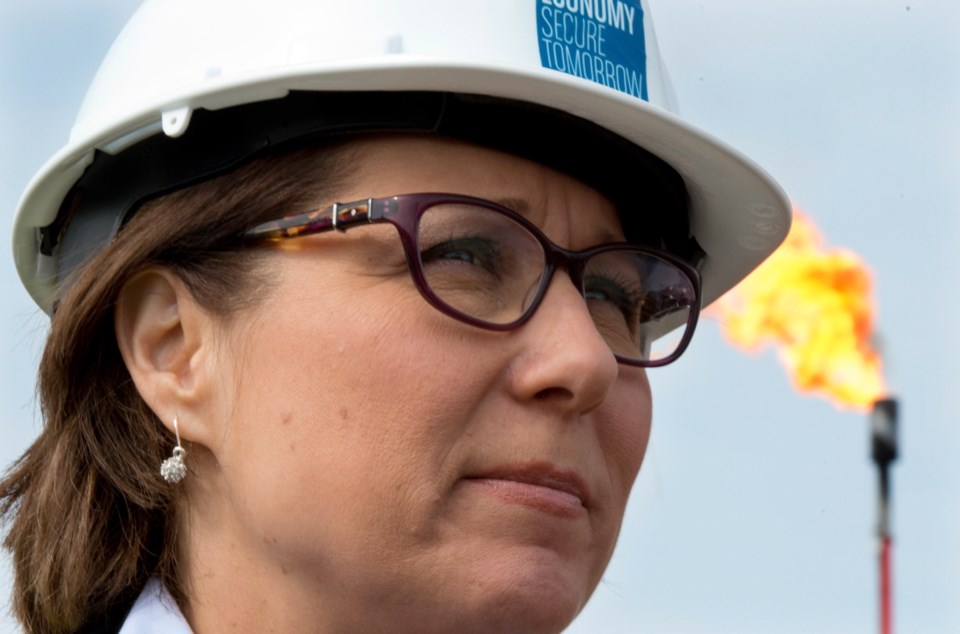B.C. and Alberta have agreed to endorse each other’s energy strategies in a move that could more easily pave the way for oil pipelines to B.C.’s west coast.
B.C. Premier Christy Clark and Alberta Premier Alison Redford jointly announced a new framework agreement that they say will allow energy projects to potentially move product, like oil, across provincial boundaries to the B.C. coast to be shipped to overseas markets.
With the deal in place, Alberta accepts B.C.’s five conditions for pipelines, including a fair economic benefit for the province. In return, B.C. agrees not to pursue Alberta’s royalty or tax revenues and will sign on to the Alberta-led Canadian Energy Strategy.
“We have reached agreement between our two provinces on two important matters,” Clark told reporters in Vancouver today.
“Alberta has reached a broader understanding and acceptance of British Columbia’s five conditions and our province has agreed to join the Canada Energy discussions started by premier Redford.”
The agreement appears to resolve a long-running disagreement between the two premiers over details on cross-provincial pipelines.
Alberta agrees B.C. has the right to negotiate with energy companies for appropriate economic benefits, and B.C. agrees Alberta’s royalties are not on the table for negotiation, according to a joint government news release.
Redford said it was important to her province that its royalties and taxes remain untouched.
“This is about putting in place economic models that are going to work in Canada, in each of our economies and allow for product to move,” she said.
The two provinces also have a working group on energy issues, which is expected to produce recommendations on how to open up new energy markets by the end of the year.
Clark would not say to what extent B.C. might consider taxes or tolls for pipeline projects, only saying that would need to be discussed in the future.
Both premiers said the deal does not mean any pipeline projects are immediately going ahead.
Enbridge’s Northern Gateway project proposes to pump Alberta’s bitumen to Kitimat in B.C. where it would be shipped by tanker to overseas markets. There are also proposed natural gas pipelines and refineries projects in various stages of development.
B.C.’s five conditions also include First Nations support and a “world class” oil spill response system for the coast, which Clark has said needs to be improved by the federal government.
“In all five areas we're seeing progress and that doesn't mean we snap our fingers overnight and it’s done but we're making good progress all the way along and that's important,” said Redford.
Clark said her five conditions would give proposed pipelines a “social licence” to proceed and her victory in the May provincial election gave her a mandate to pursue responsible natural resource development.
“As premier Redford said, this is an important step to getting there,” said Clark. “Without this step it would have been hard to make any real progress on the rest of those discussions.”



